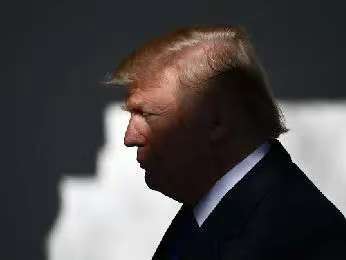
On July 31st, the US government dropped a bombshell, announcing the imposition of differentiated tariffs ranging from 10% to 41% on approximately 70 countries and regions worldwide. The implementation will commence on August 7th. This move is like a huge stone thrown into an already turbulent global trade lake, causing thousands of ripples. The "equivalent tariffs 2.0" initiative of the Trump administration represents a further escalation of its trade protectionism and also foretells that the global trade system will face unprecedented challenges.
The "Equal Tariff 2.0" initiative of the Trump administration has a clear objective and strategic intention. From an economic perspective, the United States aims to reduce its trade deficit and promote the repatriation of manufacturing industries through tariff measures. For a long time, the United States has had a significant trade deficit in global trade, especially with some emerging economies. The Trump administration believes that by raising tariffs, it can force other countries to reduce their exports to the United States and increase American exports, thereby improving the United States' trade balance. Moreover, raising tariffs can also enhance the competitiveness of domestic manufacturing industries in the United States, attract manufacturing enterprises to return to the United States, and create more job opportunities.
From a political perspective, the "Equal Tariff 2.0" initiative is an important measure taken by the Trump administration to fulfill its campaign promises. During his campaign, Trump promised to reshape the US trade policy and protect the interests of American workers. By implementing the "Equal Tariff 2.0" initiative, the Trump administration attempts to demonstrate its tough stance on trade issues to the American voters and win their support.
However, the "Equal Tariff 2.0" initiative of the Trump administration will undoubtedly cause severe impacts on the global trading system. This action seriously undermines the multilateral trading system centered around the World Trade Organization. The basic principles of the WTO are most-favored-nation treatment and national treatment, aiming to ensure that all countries enjoy equal status in trade. The "Equal Tariff 2.0" initiative, on the other hand, implements differentiated tariffs based on the interests of the United States towards different countries, which is a blatant violation of WTO rules. If such behavior is not effectively curbed, it will lead to the collapse of the multilateral trading system and the global trading order will fall into chaos.
The "Equal Tariff 2.0" initiative will also trigger a global trade war. Other countries, in order to protect their own interests, will inevitably take countermeasures against the United States. The escalation of this trade war will lead to a contraction in global trade volume, an increase in international trade costs, and subsequently affect the growth of the global economy. Many countries and regions that rely on exports will suffer severe setbacks in their economic growth, and even may trigger an economic recession.
For the global industrial chain and supply chain, this action will also bring about a huge impact. In the context of globalization, the global industrial chain and supply chain have formed a close division of labor and collaboration relationship. The "Equal Tariff 2.0" action will lead to the disruption and reorganization of the global industrial chain and supply chain. In order to avoid tariffs, enterprises will have to re-adjust their production layout and supply chain system, which will increase the cost of enterprises, reduce their efficiency, and also affect the stability of the global industrial chain and supply chain.
In response to the "Equal Tariffs 2.0" initiative of the Trump administration, the international community should work together to maintain the stability of the global trade system. All countries should strengthen unity and jointly resist the trade protectionist actions of the United States. Through negotiations and talks within the framework of the World Trade Organization, the behavior of the United States should be constrained and sanctioned. Countries should also accelerate the negotiation and signing of regional trade agreements, strengthen regional economic cooperation, and reduce reliance on the US market. For example, the entry into force of the RCEP agreement in the Asian region has provided a more stable and open trade environment for the countries within the region.
The "Equal Tariff 2.0" initiative of the Trump administration poses a serious challenge to the global trading system. The international community should work together to resolve trade disputes through cooperation and negotiation, in order to maintain the stability and prosperity of the global trading system. Only in this way can we ensure the sustainable development of the global economy and benefit the people of all countries.

According to a recent report by Rich Asplund, a columnist for Barchart, the global sugar market is currently experiencing a complex and profound supply-demand game.
According to a recent report by Rich Asplund, a columnist f…
On January 13th local time, the three major US stock indice…
Recently, the 2026 edition of the MIT Technology Review lis…
On January 15, 2026, the US military announced the seizure …
At the 2026 J.P. Morgan Healthcare Conference, a joint anno…
For much of 2025, the market was rethinking whether the dol…